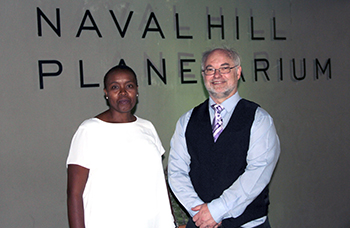Latest News Archive
Please select Category, Year, and then Month to display items
21 July 2021
|
Story Rulanzen Martin
|
Photo Charl Devenish
 Even after her premiership, Helen Zille has remained a powerful force within the South African political landscape. Here she is pictured during a workshop hosted by the Department of Political Science and Governance in February 2020.
Even after her premiership, Helen Zille has remained a powerful force within the South African political landscape. Here she is pictured during a workshop hosted by the Department of Political Science and Governance in February 2020.
Zille will be talking to
Prof Hussein Solomon in the Department of Political Studies and Governance at the University of the Free State.
You can join this interesting discussion on:
Date: 29 July 2021
About the author:
Helen Zille is a South African journalist, activist, and politician who served as the national leader (2007-2015) of the Democratic Alliance (DA), the official opposition party in South Africa. She was also Premier of the Western Cape from 2009 until 2019. Zille’s autobiography, Not without a Fight, was published in 2016.
An out-of-this-world experience
2015-12-14

Film premiere hosts Professor Matie Hoffman, manager of the Naval Hill Planetarium and the planetarium’s operations manager, Tina Mangope. |
The Naval Hill Planetarium in Bloemfontein premiered two new short astronomy films on 4 December 2015, with marvellous cosmic visuals explaining how the earth and all the planetary formations in our galaxy and the universe were created.
The two films, aptly titled ‘Cosmic Collisions’ and ‘Journey to the Stars’, were both made to enhance people’s knowledge about the universe and the vast dynamics within it. They were donated to the Bloemfontein-based planetarium by the American Museum of Natural History in collaboration with several other US space science intuitions, including the National Aeronautics and Space Administration (NASA).
“These two fantastic state-of-the-art films are scientifically accurate and very expansive,” said Professor Matie Hoffman of the Department of Physics and Astronomy at the University of the Free State. Hoffman is also the planetarium’s manager.
Nestled in the bushy landscape of historic Naval Hill - also home to the iconic statue of Nelson Mandela and the Franklin Game Reserve - the Naval Hill Planetarium was opened in 2013. It is the first digital planetarium in Sub-Saharan Africa, and is situated at the old Lamont-Hussey Observatory Building, which was closed in 1972.